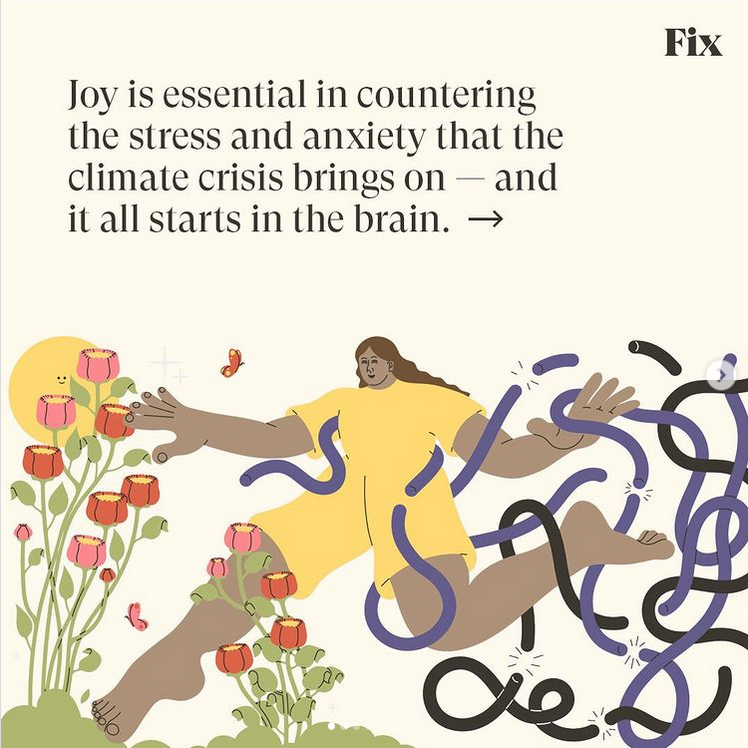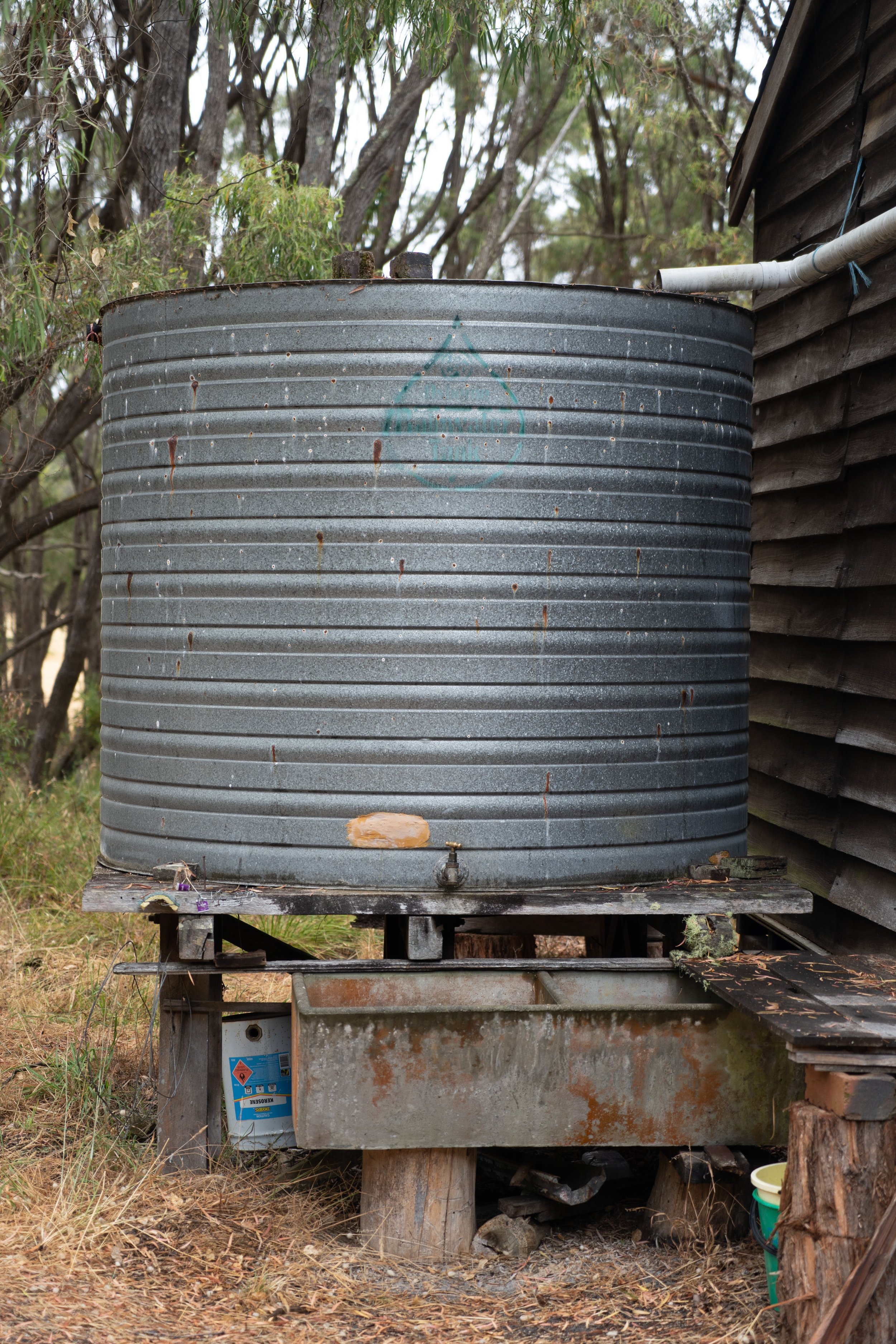by Jeff Watson
The COVID-19 pandemic and climate change have two things in common; both events impact us all in disparate ways and leave us feeling at least uncomfortable about their presence. However, there is one notable difference: there is general optimism that the pandemic will end within a predictable time frame, but this is not so for climate change.
The impacts of climate change on humanity are for the long haul.
In Climate Change - It's Driving Me Crazy, we talked about how this global disaster affects our emotions and our subsequent reactions to these effects. So, what do we do when afflicted with anxiety and even grief over this issue?
When we’re aware of something out of the ordinary or inconvenient, the normal response is to act. For example, a burnt out incandescent light bulb will be replaced with an LED bulb instead, a small thing but it makes a difference. Can making a difference in addressing a problem of a much larger scale really be that simple? No, but we are obliged to try.
As individuals, what can and should we do to lessen the impacts of climate change on ourselves and our community?
STEP 1: Educate yourself
Knowing that the climate is changing and impacting us in various negative ways is no longer sufficient. Similar to the response to COVID-19, every person must take measures to help minimize the impacts of climate change.
From the simple activity of sleeping to building a massive Olympic stadium, every activity requires the generation, transportation and consumption of energy—all of which have consequences. Just like how we know the effects of using fossil fuels (one of our largest energy sources), knowing the direct and indirect consequences of our life needs and lifestyle choices help us understand our impact on communities and society.
Understanding how each of our actions and choices affect our climate helps us decide what actions and choices we should adopt, change or cut short. Credit: Seth Wynes/Kimberly Nicholas, Environmental Research Letters, 2017.
STEP 2: Act on your convictions
I drive an SUV, because my partner has mobility limitations. But we also own two televisions, a laptop and an iPad. While I have an energy-efficient house and furnace, I do not have a roof that is suitable for solar panels. Being a waterfront house, it must have air-conditioning and a crawl space dehumidifier to keep moisture levels low. In other words, I do not walk the walk. Yes, that is indeed troubling and plays on my conscience, and I am far from alone in such a situation. But small positive actions add up. I have an electric lawn mower, a rake, a broom and hand clippers. Gardening is now a therapeutic activity. I bike more and not just for recreation.
The challenging dilemma we face is the need to radically cut back on energy use, as individuals and as a society. We also know that time is of the essence in reducing our dependence on fossil fuels, but there is a great degree of inertia in industrial societies to back off from such demands that conflict with rising consumption. Not every society has the benefit of surpluses in what is available to its people, but Canada sits amongst the top five per capita energy consumers and is in the top ten wealthiest per capita nations.
We are products of our culture and our built environments, but there are options. Ontario can achieve net zero emissions in electricity production. For example, switching to high efficiency electrical heating, ventilation, and air conditioning system should be promoted by local governments, developers and utility providers and acted upon by us. Think about the personal choice options set out in the graphic above.
STEP 3: Let your conscience be your guide
In the words of Sayadaw Pandita, one of the world’s most eminent Buddhist scholars:
““All of us are slaves of craving. It is ignoble but it is true. Desire is insatiable. Desire for things can never satisfy. If we understand this truth correctly, we will not seek satisfaction in this self-defeating way. ””
We are conscious of the changing climate, of its negative impacts on society, and that it could all directly affect us. There is a relentless news cycle on climate crises around the globe, confirming this.
These stories affect our mental health in a variety of ways, not the least of which is the weight and guilt following the knowledge that we are contributing to the dilemma we all face. Making changes to our personal lives and influencing change in others, even just by example, can help to allay some of those thoughts, and, even better, bring a degree of self-satisfaction.
STEP 4. Acceptance
There is another necessary task that we need to undertake to achieve better mental health. To date, most of the damage we have done to our climate is due to the rapid growth of industrial societies in the last 50 years. If emissions were cut to zero today, it would be potentially 400 years before we saw a return to scientifically acceptable levels of carbon dioxide in our atmosphere. That reduction in emissions will not happen any time soon, especially knowing that the rate of climate change and severity of the resulting impacts is increasing concurrently. very step towards fighting climate change is a step in the right direction. Change takes time; accept that and move forward. Learning to adapt will be challenging.
What changes Can We implement today?
“If I cannot do great things, I can do small things in a great way.”
How can we perhaps lessen our impacts to benefit society and our own mental health? Here are a few helpful tips:
About The Author
Image credit: Town of Essex
Jeff Watson is a Senior Policy Planner at the Town of Essex, Essex, Ontario, having previously worked as a Senior Planner for the City of Windsor. He is passionately involved in various community improvement programs and was recently honoured for his significant professional contributions to active transportation infrastructure with the Wheels of Change: Professional of the Year Award by the Share The Road Cycling Coalition. He is an avid kayaker and cyclist, who is deeply dedicated to promoting awareness about the impacts of climate change in the Windsor-Essex community and beyond.


















